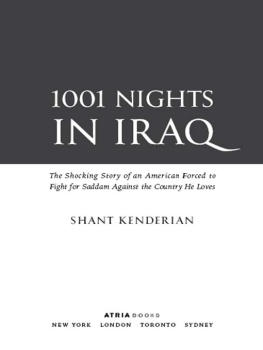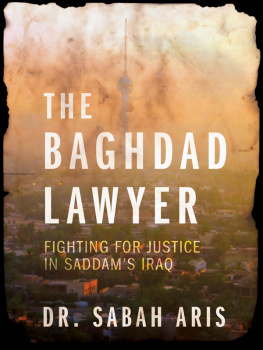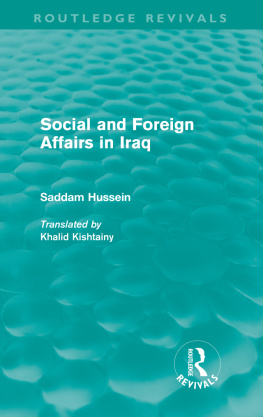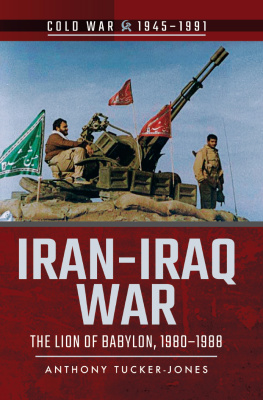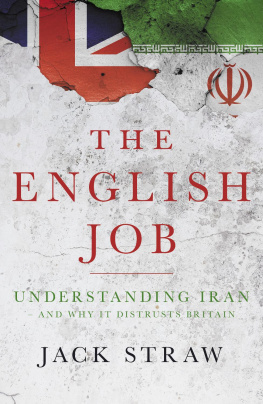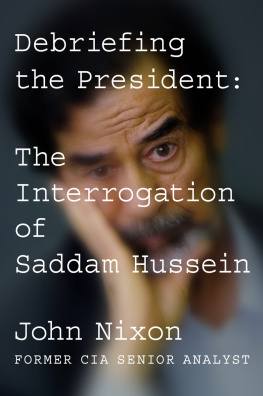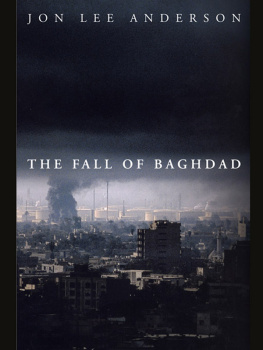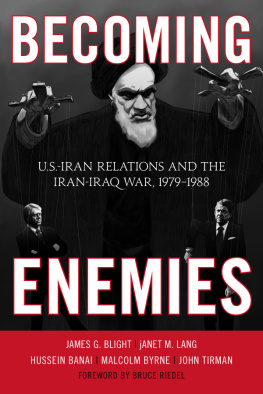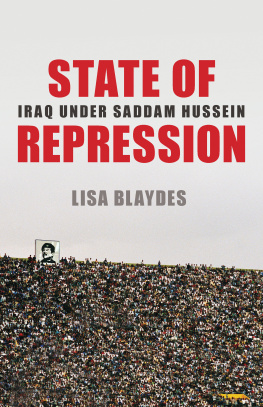Praise for 1001 Nights in Iraq
Ive heard a lot of stories in 30 years as a Hollywood producer but Ive rarely found one as beautifully bizarre, deeply touching and as uplifting as Shant Kenderians story.
Robert Cort, Executive Film Producer
Shant Kenderian invites us into a privileged place rarely visited by outsiders in Baghdad, the perspective of an accidental Iraqi soldier. With him, we take a jagged road to the front lines of Saddam Husseins impetuous war against Kuwait. He takes us on an emotional journey that is both tormented and complex and, in the process, establishes an important context through which we can view todays Iraqi conflicts. What a ride!
Liz Balmaseda, two-time Pulitzer Prizewinning journalist
Authentic, uplifting, and above all humanthis is a moving story of success against the odds.
Robert Lacey, bestselling author of The Kingdom
The story of an innocent man hurled into a maelstrom of seemingly endless perils and predicaments, Shant Kenderians 1001 Nights in Iraq rivals anything in the fantastic tales narrated by Scheherazade. But Kenderians story is true, making it all the more astonishing and unforgettable. Only a man of great courage and resilience could have survived such a harrowing ordeal. And only a storyteller of extraordinary talent could have related it with such humanity, grace, and humor.
Andrew Carroll, New York Times bestselling editor
of War Letters and Behind the Lines
Shant is a modern-day Odysseusyet the nymphs and monsters he faced were far from mythological. His book is proof that truth is sometimes not just stranger, but also more beautiful than fiction. Life is good after all.
Scarlett Lacey, film producer
Shant has written a fast-paced, riveting story that allows the reader to peek into the beautiful mind and heart of a man who manages to stay away from the traps of bitterness and despair; and who against all odds, survives a satanic hell with dignity intact. This real-life story underscores the correctness of my great-grand-uncle Alfred Nobel when he said: War is the horror of horrors and the crime of crimes.
Claes Nobel
Few true life adventures are as filled with hard-to-believe events as those recorded in Shants 1001 Nights in Iraq . As a participant in Desert Shield/Desert Storm, this remarkable account brought me back to key events but from a human, personal perspective that spans life-threatening as well as humorous, heartwarming events. This story proves that even in the most dire circumstances, Providence can intervene in a most profound way and that this impact continues in the lives of many of the key characters in this story.
Patrick P. Caruana Lt. Gen. (Ret), USAF
1001 NIGHTS IN IRAQ

1230 Avenue of the Americas
New York, NY 10020
This work is a memoir. It reflects the authors present recollections of his experiences over a period of years.
Copyright 2007 by Shant Kenderian
All rights reserved, including the right to reproduce this book or portions thereof in any form whatsoever.
For information address Atria Books, 1230 Avenue
of the Americas, New York, NY 10020
ISBN-13: 978-1-4165-4610-8
ISBN-10: 1-4165-4610-3
ATRIA BOOKS is a trademark of Simon & Schuster, Inc.
Visit us on the World Wide Web:
www.SimonandSchuster.com
To my Guardian Angel,
who took part in the events of this book, no less than I did,
and without whom this story would have never been told.
1001 Nights in Iraq tells the story of Iraqis forced to soldier in the Arabian Desert, sailors forced to go to sea, and of miraculous escapes from death, time and again. While an army of one million marches through the desert and mysterious events take place in the sea, 1001 Nights in Iraq resembles the world-renown classic known in the West by the title, 1001 Arabian Nights.
Both stories tell of travel and adventure in an increasingly bizarre world. But unlike its namesake, 1001 Nights in Iraq tells a story true to the last word.
Shant Kenderian
PART ONE
1.Land of Mirrors
The door to my fathers house was open, but I could not step inside. My cousin stood in the doorway, blocking my path. Her eyes warned me to take pause. If only it wasnt too late. I had traveled an unfathomable distance to make things right with my father. I had ventured beyond boundaries of family, culture, and convention. I had no map, no compass, no tangible itinerary. A little more than two years after moving to the United States with my mother and brother, after embracing a new life and a new language, I had returned to my native Iraq to bid my father a proper farewell. On the heels of my parents contentious breakup, we had left too abruptly for good-byes. No amount of American food, adventure, and distraction could chase away the deep regret I felt for dishonoring my father by leaving without a word. A simple good-bye, thats all I sought to bring him. At seventeen, I decided I would travel home, embrace him, make myself whole again, then return to my new world in America.
But nothing back home is that easy. My beloved Iraq is a land of mirrors and trick doors. By the time I learned this, just days after my return in 1980, it was too late. I was trapped. On September 22 of that year, only seven days after I arrived and made peace with my father, Saddam Hussein launched an attack against the neighboring country of Iran, marking the beginning of what would be an eight-year war. Saddam closed the borders and forbade all males of military age, myself included, from leaving the country. In one impetuous stroke, Saddams edict tossed me into a holding pattern that would endure not one war, but two. I would be stranded there for more than ten years and forced to take an unimaginable route back to America.
Now, nearly two years into my Iraqi limbo, I stood outside my fathers house, at yet another door deceptively open. I glared at my cousin and she stepped aside, revealing a living room full of mourners. I bowed in prayer. Our Father, who art in heaven, hallowed be Thy name
I made my way past the mourners until I reached my fathers coffin. Two months earlier, my father, Hagop Kenderian, was struck as he drove on a one-lane road through the mountainous regions of northern Iraq. Two reckless Turkish cargo truck drivers were passing each other on an uphill segment of the road and collided with my father atop the hill. He was taken to a hospital in Mosul, but he never regained consciousness.
I draped my arms across the casket and I gave him the longest embrace I could ever remember. As I did this, I could hear through my sobs the chatter of strangers, relatives of my fathers wife.
Who is he?
This is his son who came back from America.
America. It no longer seemed a real place to me, certainly not one that could be accessed via Baghdad. It all seemed a memory: landing in Chicago, Illinois, as a grateful green card holder and permanent resident. I was fifteen years old. I eagerly took in the novelties of American life and the notion that in the United States democracy and freedom are God-given rights. Granted, I felt like an outsider at first. But then again, Ive always felt like an outsider. As an Iraqi Christian of Armenian descent, I often felt like an interloper in my own country. I was raised in a tight Armenian community, attended a private Armenian school, and worshipped within the ornate walls of the St. Gregory the Illuminator Armenian Apostolic Church in Baghdads ancient city. Since our great-grandparents settled in Iraq, fleeing rampant massacres in Ottoman Turkey in the early 1900s, weve shared a precarious existence as tolerated foreign infidels in a land of Muslim dominance.

